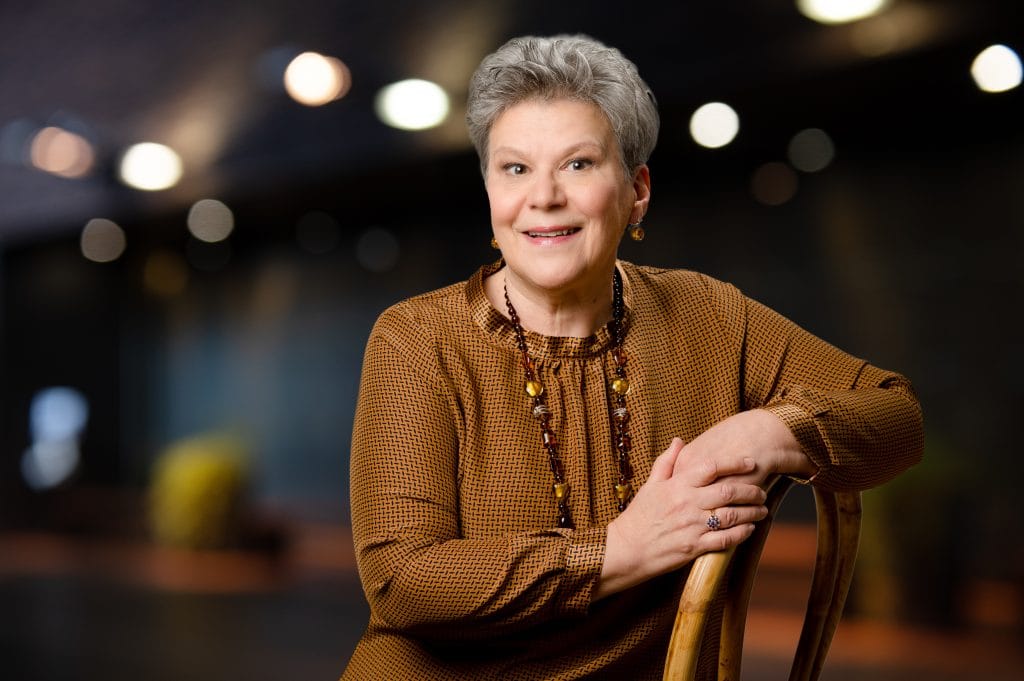Soile Isokoski: a sound ethos and an open atmosphere essential for a jury
31 October 2022
Opera singer Soile Isokoski, the new chair of the jury of the Mirjam Helin International Singing Competition, sees the role of chair as that of a liaison, and hopes that the competition could be held more often. She wants to keep the requirement for a broad repertoire in the competition programme, because it is in the interest of young singers.

“I did think about it”, says Soile Isokoski, laughing. “Accepting the role of chair wasn’t a foregone conclusion. The first time I served as an international juror was precisely in the Mirjam Helin Competition in 2009. I have since gained experience of many such posts, and sitting on a jury no longer terrifies me – this autumn, for instance, I was on the jury of the International Art Song Competition Stuttgart. Nevertheless, the responsibility that comes with being chair was a concern.”
After reflection, Isokoski decided to take on the task. “I will do it with humility and respect. Different competitions vary a lot in what the jury focuses on and what it accentuates”, says Isokoski. “In other competitions, jurors talk to each other, whereas in the Mirjam Helin Competition, they don’t. However, I’m confident that, with an experienced executive director, I’ll be fine. I know most of the singers on the jury, which makes it easy to work with them.”
In Isokoski’s opinion, the primary task of the chair is to create a sound ethos and an open atmosphere within the jury. “The jurors must feel respected and needed. I think the key role of the chair is to act as a liaison between all involved parties. Competing in art is virtually impossible, especially in vocal art, when the instrument is the human voice. Yet the voice is just one part of the performance. In judging a competition, a set of clear criteria and a consideration of the whole package are required: phrasing, musicality, mastery of languages, intonation, and communication. When there are very different voices and personalities, the jurors must be careful not to let their own preferences bias their judgement. And while visuality on stage is important, outward appearance should not be given too much attention in the competition. A fancy outfit and a shiny tie are not what matters; if the delivery is interesting, everything else is irrelevant.”
Competitions are educational for a singer
“I think a young singer should participate in at least a couple of competitions. It’s about testing yourself: learning how to keep your nerve and where you stand in a group”, says Isokoski. “Preparing for a competition is in itself educational, because learning a broad repertoire is crucial for a singer. Even if you don’t make it to the finals or even the semi‑finals, the work you have put in for the competition will bear fruit. I’m speaking from personal experience here. Having a broad and well-prepared repertoire opens up opportunities: you can jump into roles and concerts, even at short notice.”
Even in competitions, singers must remain loyal to themselves: why did I choose this particular song; why do I do what I do? “Of course, you have to venture outside your comfort zone to try something new. And if you have no success in a competition, you have to be kind to yourself: this is how it went this time. Just return to the repertoire you are familiar with, and try again in a couple of years.”
Isokoski says that young singers run the risk of fixating on a specific vocal style and jumping into overly demanding roles too early. “It eats up their key asset, that is, their voice. Some singers also just go from competition to competition and earn money that way, instead of doing concerts. By doing this, they run the risk of developing a distorted view of what performing is. Performing for a jury is very different from performing for an ordinary audience.”
Singers shouldn’t go to a competition gritting their teeth, just thinking about winning it. “Of course, there must be a will to win, but a helpful approach to competitions is to think that as a singer, I am a servant to music, not the centrepiece. It gets you surprisingly far. However, a singer needs good companions, such as agents, conductors and pianists. The role of the rehearsal pianist is extremely important for a singer”, emphasises Isokoski. “I myself have had the opportunity to work with good ones. You learn something from every pianist, because they have a tremendous amount of knowledge and skill. A good lied pianist ‘plays the text’ and is able to discuss technical issues with the singer.”
“Success in competition can bring job opportunities, including minor projects sometimes”, says Isokoski. “You shouldn’t overlook these, because often you get to perform with top musicians. In that company, you learn and are able to raise your level.”
The Mirjam Helin Competition: well-known in Finland
“We have a great competition! I think we should keep the requirement for a broad repertoire in the competition programme, because it is in the interest of the competitors”, says Isokoski. “Besides, the audience enjoys competitions that extend over several days. The significance of the Mirjam Helin competition for Finnish musical life is obvious: people know the competition and know to expect it. Abroad, however, I think the competition remains somewhat under the radar – more frequently held international competitions are more well-known. The Mirjam Helin competition is held every five years, which is infrequent enough for the whole event to be forgotten outside Finland. Young singers and their teachers wonder if they can even enter the competition within the set age limit. I sincerely hope that there can be a change and that the competition can take place more frequently than once in five years.”
